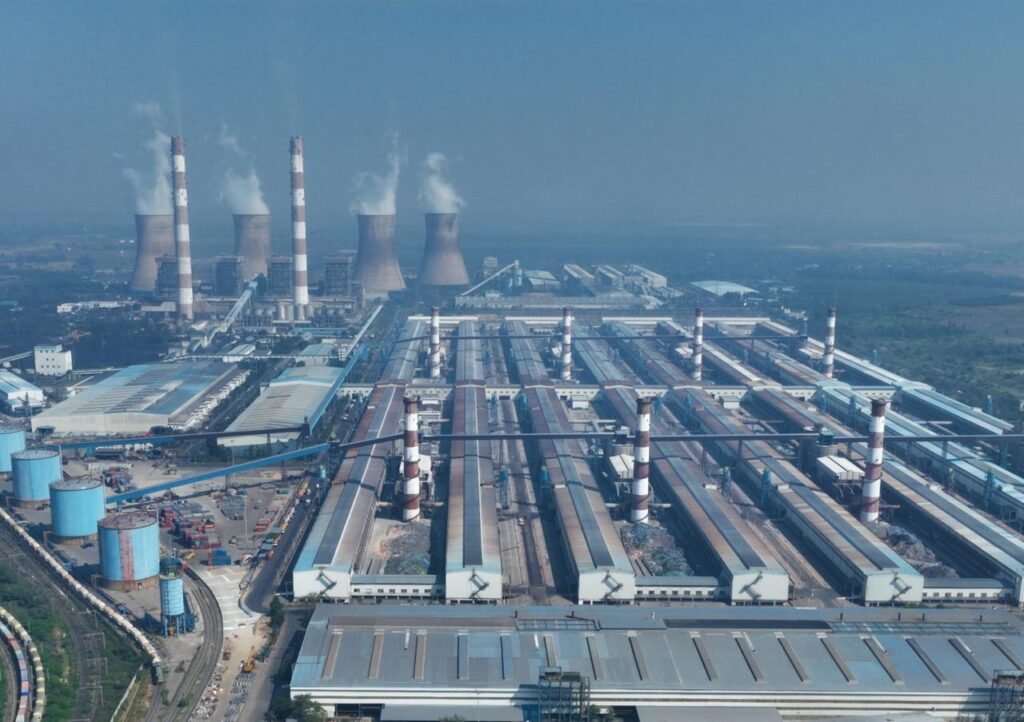Bhubaneswar, June 04 2025: Vedanta Aluminium, India’s largest aluminium producer, is charting a bold course toward a sustainable future with a comprehensive series of decarbonization initiatives that reflect both ambition and innovation. As the world intensifies its focus on climate action, Vedanta is emerging as a leader in sustainability within the global aluminium industry, weaving together several facets of responsible business operations.
One of the most significant moves in this direction is the company’s accelerating energy transition, led by a long-term partnership with Serentica Renewables. Through this collaboration, Vedanta Aluminium is sourcing 1335 MW of renewable energy to power its mega operations in Odisha and Chhattisgarh. This move will contribute towards helping achieve the aim of having renewables comprise 30% of its power usage by 2030, a major milestone on the path to net-zero emissions by 2050.
Complementing this is a mix of strategic alliances and innovative solutions that are aiding the transformation of the wider industry. For example, Vedanta has entered into a partnership with GAIL (India) Limited to source natural gas, a clean fuel source, for powering its casthouse operations. The company is also making impressive progress in reducing emissions through biomass co-firing. At its Lanjigarh alumina refinery in Odisha and BALCO smelter in Chhattisgarh, the company has begun using biomass briquettes made from agricultural residue for co-firing applications. In Lanjigarh alone, 20 tonnes of biomass are co-fired daily, cutting down over 10,000 tonnes of CO₂ equivalent emissions annually. This initiative not only supports the environment but also uplifts local farmers by creating a market for agricultural waste, turning a pollution problem into a sustainable livelihood opportunity for rural communities. Such interventions are designed to enhance energy efficiency and diversify Vedanta’s energy portfolio with low-carbon alternatives.
The company’s commitment to decarbonization extends beyond energy generation to plant logistics and mobility. Vedanta Aluminium has pledged to decarbonize 100% of its light motor vehicle fleet by 2030. Towards this effort, it has introduced India’s first 10-ton electric forklift at its mega aluminium plant in Jharsuguda, and now operates the country’s largest fleet of electric lithium-ion forklifts, significantly reducing diesel consumption and emissions across its operations. The shift to electric mobility is further reinforced by the recent partnership with Let’s DriEV, launched in Vedanta’s Jharsuguda township to promote the use of electric vehicles among employees and residents. In addition to these efforts, Vedanta is exploring the use of biodiesel in its commercial vehicle fleet, conducting successful pilot runs to evaluate its feasibility, a reflection of the company’s openness to innovation and exploring new solutions that align with its decarbonization goals.
What sets Vedanta’s approach apart is its integration of sustainability with community development. Through awareness programs on key occasions such as World Environment Day and International Day for Biological Diversity, the company engages with local communities through environmental awareness campaigns and educational initiatives, fostering a culture of sustainability from the grassroots up.
Vedanta Aluminium’s sustainability efforts have been recognised with the company ranking 2nd on the S&P Global Corporate Sustainability Assessment 2024 among global aluminium companies. Its aluminium smelters have been certified by the Aluminium Stewardship Initiative’s Performance Standards for demonstrating sustainable operations. Additionally, Vedanta Aluminium’s product range has received Environmental Product Declaration (EPD) verification for being sustainably produced.
Vedanta Aluminium’s multi-faceted approach to sustainability is a compelling example of how industrial giants today can lead the charge in climate action. By embracing several levers such as renewable energy, cleaner fuels, electric mobility, and community-driven initiatives, the company is not only reducing its environmental impact but also setting a benchmark for responsible industrial growth in India.


